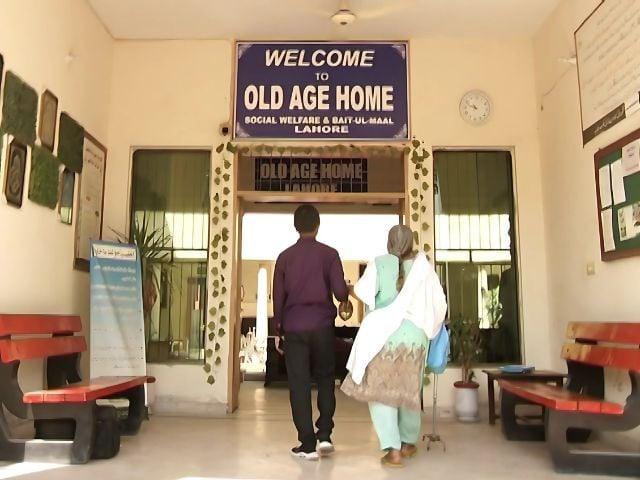LAHORE:
As Eid approaches, older women who reside in the old age of old age administered by the Lahore government, Aafiyat, wait with their eyes eager for their loved ones. Despite the efforts of the Punjab Social Welfare Department, NGOs and the philanthropists to bring new clothes, shoes, gifts and assignments of EID, their hearts yearn for only one thing: family.
Among them is Bakmina, originally from Mardan. After the death of her husband, she moved to Lahore, she raised her children and saw them establish themselves in their own families. But now, she lives alone in Aafiyat.
“My son is a good man,” she says, “but my daughter -in -law threatened to leave if I stayed with them. I couldn’t let my son’s home separate for me.” Her daughter in Karachi insisted that she moved, but she refused, saying: “As a Pakhtun woman, I can’t live in my son -in -law’s house.”
The old age currently houses 33 older people: 21 men and 12 women. Among them, Rukhsana Zafar de Faisalabad and Naseem Akhtar de Shahkot share similar destinations.
Rukhsana’s voice trembles while remembering her children.
“Children can forget their parents, but mothers never forget their children,” she says. “The NGOs and the students visit us on EID and the Mother, but my own children never come.” Occasionally one calls, but the others have erased it from their lives.
Naseem Akhtar also fights loneliness. After the death of her husband, her own brothers took possession of her inheritance, while her in -laws took her husband’s property.
She lived with her only daughter until her sudden death. He didn’t go where to go, his son -in -law forced her to leave. “Now, I don’t have anyone,” she says. “I have a grandson in high school. We talked on the phone, but he never visits.”
While some in Aafiyat have families that have abandoned them, others never had their own families. To relieve their pain, the home keeps them involved in Activiti
is. The one in charge of Aafiyat, Sumaira Aslam, says: “Each resident here has a unique story. While we cannot replace their families, we make sure they are well taken care of, providing adequate meals, medical care and a comfortable environment.”
The installation offers a television hall, newspapers, magazines and religious activities such as prayers and recitation of the Quran. A meal committee, composed of residents, helps plan your daily menu.




